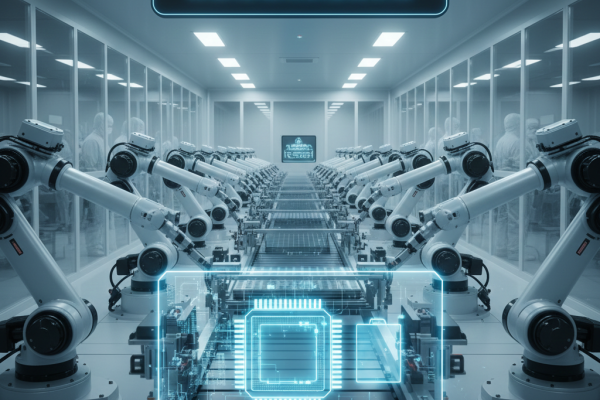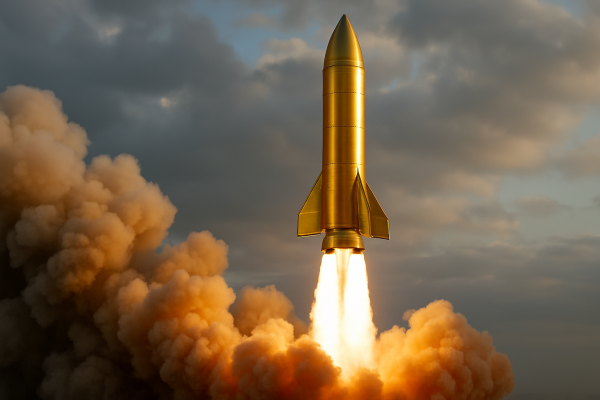November 6th, 2025 | 07:00 CET
Does Germany have a drone problem? Hensoldt, TKMS, Helsing, and NEO Battery Materials!
Drone alerts at German and European airports! At the same time, criticism of Germany's defense policy is growing louder. Is the federal government investing too much in tanks and other heavy equipment and too little in drones and counter-drone systems? This opinion is shared not only by the head of Germany's new drone star, Helsing, but also by several other experts. The situation is quite different in the rest of the world, where demand for drones is rising significantly. NEO Battery Materials is also benefiting from this trend. The Company recently secured an existing factory in South Korea for the production of high-performance batteries, and the first million-dollar orders are already in place. And what is TKMS doing? Its share price has slipped in recent days. Could large orders bring new momentum?
time to read: 5 minutes
|
Author:
Fabian Lorenz
ISIN:
HENSOLDT AG INH O.N. | DE000HAG0005 , TKMS AG & CO KGAA | DE000TKMS001 , NEO BATTERY MATERIALS LTD | CA62908A1003
Table of contents:

"[...] Silumina Anodes® is a ceramic-coated graphite/silicon anode composite material that we plan to produce in Schwarze Pumpe, Saxony. Here, we aim to supply manufacturers of batteries for e-cars with an application-ready drop-in technology that is low-cost, high-performance and safe. [...]" Uwe Ahrens, Direktor, Altech Advanced Materials AG
Author
Fabian Lorenz
For more than twenty years, the Cologne native has been intensively involved with the stock market, both professionally and privately. He is particularly passionate about national and international small and micro caps.
Tag cloud
Shares cloud
Drone alert in Germany: Billions invested incorrectly?
Not only are drone alerts at European airports and critical infrastructure becoming more frequent, but criticism of Germany's defense policy is also increasing. Industry representatives and security experts criticize the federal government for relying too heavily on traditional weapon systems such as tanks, while neglecting investments in drones and unmanned systems. Gundbert Scherf, co-founder of the Munich-based defense company Helsing, recently made this point particularly clear. He warned that modern warfare, as seen in Ukraine, has long been dominated by drones. Around 80% to 90% of casualties on both sides were due to drone attacks. Yet, Germany continues to invest billions in armored vehicles whose effectiveness is increasingly being called into question under new combat conditions.
Others are also sounding the alarm. Security expert Nico Lange criticized the German Armed Forces for procuring tanks without giving sufficient thought to protection and defense systems against drones. One industry manager even spoke of a budget ratio of "99 to 1" in favor of traditional systems. Economists such as Moritz Schularick and Niall Ferguson also warned that Germany was buying "the wrong weapons against Putin" and ran the risk of missing out on technological trends that will shape the wars of the future. While countries such as the US, the UK, and France are massively expanding their drone capabilities, the German budget for unmanned systems remains relatively modest.
The consequences of such an imbalance could be severe. Militarily, the German Armed Forces risks falling behind in future fields of operation if they continue to rely on expensive, maintenance-intensive technology that can hardly compete with swarms of low-cost drones. Economically, billions could be tied up in equipment whose tactical relevance is steadily diminishing. Strategically, experts warn that Germany is once again reacting too late to technological change – just as it did with digitalization and energy policy. Without a decisive change of course, the Bundeswehr may soon possess state-of-the-art tanks, yet lack the digital and unmanned backbone required for modern defense.
Hensoldt and Rheinmetall: Benefiting from proximity to politics
Major defense contractors such as Rheinmetall, RENK, and Hensoldt are investing in drone technology and other autonomous systems. Rheinmetall is attempting to position itself as a drone supplier. The Company is developing both small tactical reconnaissance drones and larger armed systems, while also working on drone defense solutions. A strategic partnership with the US company Anduril Industries is intended to accelerate its entry into the field of autonomously controlled aircraft and swarm technologies. This is Rheinmetall's response to the growing demand for drone platforms for reconnaissance, combat support, and precision strikes.
Hensoldt is also focusing on the increasing importance of unmanned systems, but with a stronger emphasis on sensor and defense technologies. With its Elysion C-UAS system, the Company has developed a modular solution that combines radar, radio, and optical sensors to detect and defend against drones at an early stage. Hensoldt is also working on the further development of electronic reconnaissance systems. In addition, a cooperation with drone manufacturer AVILUS GmbH was announced in October 2025. The two companies will jointly develop and market unmanned aerial systems (UAVs).
NEO Battery Materials: Batteries for Megatrends
The war in Ukraine has underscored the growing importance of drones in the military sector, whether in attack or defense, and that their importance will only accelerate. According to Grand View Research, the global drone industry revenue is expected to more than double to USD 87.6 billion by 2030. In addition, there are drones for civilian purposes - and NEO Battery Materials is benefiting from this trend. The Canadian company offers cost-effective, silicon-enhanced batteries that store more energy and charge faster. The growth prospects are excellent, as the number of robots and electric vehicles is also expected to increase significantly in the coming years. What do all these technologies need? That's right - batteries.
NEO Battery plans to cover all three major battery formats – pouch, cylindrical, and prismatic cells. For investors, an important milestone is the establishment of mass production: the Company is finalizing a lease of an operational, revenue-generating factory in South Korea. In the future, customized high-performance batteries for drones, robotics, AI electronics, energy storage systems, and e-mobility will be produced there. In September 2025, NEO already secured a multi-million-dollar order from an Asian drone manufacturer to supply batteries for industrial cargo drones. In addition, NEO plans to supply its advanced silicon anode materials to other battery manufacturers, thereby rapidly increasing revenue. A multi-year offtake agreement for 50 tons of silicon anode materials over an initial four-year term has already been signed with one manufacturer.
While a recent capital increase temporarily weighed on the share price, the transaction has now been completed, with NEO raising CAD 5 million to finance further expansion. Additional orders could provide fresh momentum for the stock.
TKMS: Share price slips
TKMS is the newest defense stock on the German capital market. However, after a successful stock market debut, the share price has now slipped below the EUR 80 mark. Even the prospect of major orders from India and Canada could not prevent the decline. Instead, investors appear to be following more conservative analyst opinions.
In its initial coverage of TKMS, Deutsche Bank issued a "Hold" recommendation. While the Company is well positioned in the maritime defense sector and offers growth potential, these prospects are already largely priced into the share price. Analysts see the fair value at EUR 75. Bernstein Research takes a similar view. In a favorable environment, the Company is on course for a turnaround. Nevertheless, analysts consider the euphoria surrounding the initial listing to be exaggerated and have set a price target of EUR 74. As of yesterday, TKMS shares were trading at around EUR 76.
Drones, robotics, e-mobility – NEO stands to benefit from several megatrends in the coming years. The Company is not just a development-stage startup but already has production capacities and secured orders. Rheinmetall also has a healthy order book, albeit more in the area of traditional military technology. A problem for Germany? TKMS could secure major new orders in the coming weeks, which could give the stock fresh momentum.
Conflict of interest
Pursuant to §85 of the German Securities Trading Act (WpHG), we point out that Apaton Finance GmbH as well as partners, authors or employees of Apaton Finance GmbH (hereinafter referred to as "Relevant Persons") may hold shares or other financial instruments of the aforementioned companies in the future or may bet on rising or falling prices and thus a conflict of interest may arise in the future. The Relevant Persons reserve the right to buy or sell shares or other financial instruments of the Company at any time (hereinafter each a "Transaction"). Transactions may, under certain circumstances, influence the respective price of the shares or other financial instruments of the Company.
In addition, Apaton Finance GmbH is active in the context of the preparation and publication of the reporting in paid contractual relationships.
For this reason, there is a concrete conflict of interest.
The above information on existing conflicts of interest applies to all types and forms of publication used by Apaton Finance GmbH for publications on companies.
Risk notice
Apaton Finance GmbH offers editors, agencies and companies the opportunity to publish commentaries, interviews, summaries, news and the like on news.financial. These contents are exclusively for the information of the readers and do not represent any call to action or recommendations, neither explicitly nor implicitly they are to be understood as an assurance of possible price developments. The contents do not replace individual expert investment advice and do not constitute an offer to sell the discussed share(s) or other financial instruments, nor an invitation to buy or sell such.
The content is expressly not a financial analysis, but a journalistic or advertising text. Readers or users who make investment decisions or carry out transactions on the basis of the information provided here do so entirely at their own risk. No contractual relationship is established between Apaton Finance GmbH and its readers or the users of its offers, as our information only refers to the company and not to the investment decision of the reader or user.
The acquisition of financial instruments involves high risks, which can lead to the total loss of the invested capital. The information published by Apaton Finance GmbH and its authors is based on careful research. Nevertheless, no liability is assumed for financial losses or a content-related guarantee for the topicality, correctness, appropriateness and completeness of the content provided here. Please also note our Terms of use.




